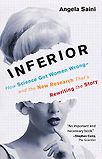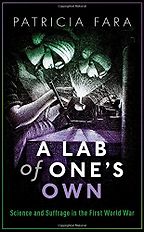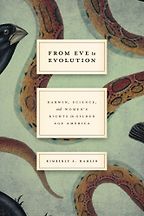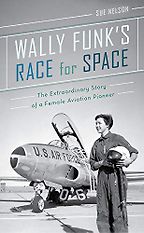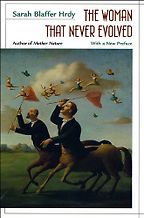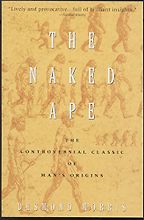What has science got wrong about women and men?
We are different, but the extent of those differences are a matter of debate. The obvious physical differences are relatively easy to quantify, although some of those also sit on a spectrum. Not all men are taller than all women, for example. And the psychological differences are sometimes not nearly as big as popular culture would have us believe. Science reflects those debates—sometimes by reinforcing stereotypes, sometimes by debunking them. But science isn’t always entirely objective, and there are many cases of research and theories that perpetuate stereotypes while actually not being based on good, objective data.
You mentioned psychological differences. I guess that it can sometimes be hard, if not impossible, to distinguish the effects of culture and upbringing from ‘essential’ differences—if those indeed exist. On the other hand, a cursory web search brings up articles alleging differences in brain structure between the sexes. Are such articles misleading?
There are neuroscientists who claim that there are differences in white matter distribution—to do with networks between neurons—but this is still early work. We don’t understand the mechanics of the brain very well at all, but to me, the more important thing is psychological difference. We know the psychological sex differences are small or nonexistent, so it really makes little difference what the structures of our brain do or don’t tell us.
Get the weekly Five Books newsletter
As a journalist, what I find really fascinating is the dogged way in which some scientists scour the brain for difference, as though they might find an answer to gender inequality in the hippocampus or prefrontal lobe. Other explanations get pushed aside by this biological essentialism.
Should we should abandon the categories of ‘man’ and ‘woman’ when talking about psychological differences, and just consider individuals?
No, because there may be small differences worth investigating. We also know that there are biological repercussions from society’s gender labels. A girl who is not encouraged to play with toys that exercise her spatial awareness may well grow up to be slightly weaker in that area. So we need to consider how gender impacts development. But I do think it’s more fruitful and accurate to consider everyone as individuals with their own particular set of strengths and weaknesses, usually a mosaic of stereotypically ‘male’ and ‘female’ characteristics.
You go into much of this in more detail in your recent book Inferior: How Science Got Women Wrong. Was there anything that particularly surprised you when you were researching and writing the book—or in its reception?
I started fairly blind because human biology had never been my area of expertise or education. In that sense, I brought my own gender stereotypes and had them challenged. It was all a surprise because everything I learned ran counter to what society had often told me. Writing Inferior and reading the research changed my life and gave a fresh dimension to my feminism. The reception has been overwhelming. I meet women who have read the book, and it seems to mean almost as much to them as it means to me.
Tell us about your first book choice, A Lab of One’s Own by Patricia Fara.
Fara’s book couldn’t have been published at a better time, around the centenary of women getting the vote. She looks at the sometimes forgotten history of women who took up ‘men’s’ work in science and industry during the First World War. What she shows is that they did just as well as men did in these jobs—sometimes very dangerous and dirty jobs.
“Reading the research changed my life and gave a fresh dimension to my feminism”
The tragedy is that despite proving themselves perfectly capable, once the war was over, they were expected to leave work and go back and be housewives. And this was a position supported by the trade unions. It’s a book that I think fills an important gap in our understanding of the history of suffrage.
Was this a time when, setting aside ‘exceptions’ such Marie Curie, women really began to distinguish in the lab—that is, in scientific endeavour—in a way people hadn’t seen before?
It wasn’t the first time, because some women had worked alongside their husbands, fathers and brothers in labs for a very long time. A few had even worked independently, if they had the means. What was special about this time was not that a few women were excelling as much as thousands of women proving that working in these fields as a matter of routine posed no threat, that they could function just as well as anyone else, and get the job done. It was the ordinariness of women in munition factories, in chemistry labs, just doing everyday work—that was the big revolution. They helped to redefine femininity.
Your second choice is Kimberly Hamlin’s Eve to Evolution. This opened a whole story to me that I knew nothing about: the responses of American women to evolutionary theory in the nineteenth century, and the role this played in the women’s rights movement at that time.
We forget what the decades in the run-up to women finally getting the vote were like. There was a huge amount of intellectual debate amongst women. Darwin’s theories played an important role in helping to rethink what it meant to be female. Evolution painted a new story of the past that countered religious narratives, and in some ways liberated women from conservative religious expectations. Although, of course, Darwin also believed that women were the intellectually inferior sex, almost less evolved than men. Hamlin beautifully captures the state of debate at the time, and profiles the incredible women thinkers engaging with these fresh scientific ideas.
Tell us about your third choice, Wally Funk’s Race for Space by Sue Nelson.
Nelson’s book isn’t a history or a biography, but an account of a strange encounter. She spent a long time travelling with and recording Wally Funk, one of the first female American astronaut trainees, for a radio programme. Although Funk had passed her training with flying colours, she was never allowed to go into space because it was decided at that time early in the space programme that only the men should go. It was sexism, of course, and an injustice that seems to have haunted Wally her whole life. Nelson shows how Wally still lives in the pure hope that she will one day go into space, that her dream—her right—to be an astronaut will somehow happen. It’s heartbreaking and touching, but also inspirational.
With your fourth choice, Sarah Blaffer Hrdy’s The Woman That Never Evolved, we’re back in the territory of evolutionary theory. What is significant about this book?
For me, this is one of the most important science books ever written. Sarah Hrdy overturns centuries of orthodoxy and assumptions about female behaviour and sexuality, with clear, logical, crystal-sharp reasoning, using not just good science but also historical evidence. I had the honour of meeting her when I was researching Inferior and found her a brilliant thinker. She is among the first feminist scientists, and I consider her books—not just this one, but also Mother Nature—part of the canon of both evolutionary biology and feminism.
What are some of the assumptions Hrdy overturns, and how?
The main myth she overturns is that of female sexuality being somehow more limited or modest than in males. It’s a myth we still live with today, that women are somehow naturally monogamous and men are naturally promiscuous, but she beautifully undermines this idea. As a work of science, it’s a masterclass, it for me it is also a work of feminism.
Your final choice is The Naked Ape by Desmond Morris. Why is this on your list?
For me, this is a book that demonstrates the misogynistic lens through which some male biologists have viewed the past. Morris routinely and repeatedly peddles the view that women have evolved to be monogamous, stay-at-home caregivers while men have pushed up human intelligence through their actions as hunters and providers. As we know now, this is most probably not how things happened.
Five Books interviews are expensive to produce. If you're enjoying this interview, please support us by donating a small amount.
It’s certainly not how modern-day hunter gatherers tend to live. The lesson for me in all these books is that our understanding of the past is always at the mercy of the present. We can’t help but project our biases and assumptions into the distant past.
What are you working on now?
I’m just finishing a new book about race science, which will be out in summer 2019. In some ways it’s a similar beast to gender, but of course race research within biology is considered taboo and the history is incredibly dark, so it is very much more political. Race is such a slippery concept and yet it feels so real. My challenge has been to get to the heart of how and why scientists try so hard to make it real.
Five Books aims to keep its book recommendations and interviews up to date. If you are the interviewee and would like to update your choice of books (or even just what you say about them) please email us at [email protected]

